Fine lines, wrinkles, and age spots can appear earlier than expected, affecting self-confidence and professional presence. Many people spend thousands on anti-aging products that don’t deliver results. The confusion around skincare routines and products leads to wasted money and frustration.
This comprehensive guide provides scientifically-proven anti-aging strategies for 2024. You’ll discover practical skincare routines, essential ingredients, and lifestyle changes that effectively combat aging signs. Our expert-backed recommendations help maintain youthful skin without expensive treatments or complicated regimens. Whether you’re in your 20s or 60s, these evidence-based tips will help preserve your skin’s natural beauty.
Understanding Skin Aging
Imagine looking into a mirror and seeing your reflection subtly change, year by year. The journey of skin aging can feel mysterious and sometimes inevitable, but there’s a science behind each fine line and dark spot. As we age, our skin starts to change due to several biological processes happening beneath the surface. This isn’t simply about growing older—it’s about how the body gradually slows down essential functions.
The Science Behind Skin Aging
Our skin is made up of layers that protect us, but as time passes, these layers slowly start to weaken. The key players here are collagen and elastin, the proteins that keep skin firm, smooth, and elastic. With age, our bodies produce less of these proteins, leading to wrinkles and sagging.
Moreover, the skin’s ability to renew itself decreases, meaning dead skin cells linger longer, making the skin look dull. Natural oils, which keep skin moisturized and youthful, also diminish. But the story isn’t just biological—sun exposure, pollution, and lifestyle habits all influence the skin’s aging process.
| Process | Effect on Skin | Approximate Age (Years) |
| Collagen loss | Reduced firmness and wrinkles | 25+ |
| Elastin decrease | Less elasticity, sagging skin | 30+ |
| Slower renewal | Dullness, uneven texture | 35+ |
| Oil reduction | Dryness, fine lines | 40+ |
Common Signs of Aging
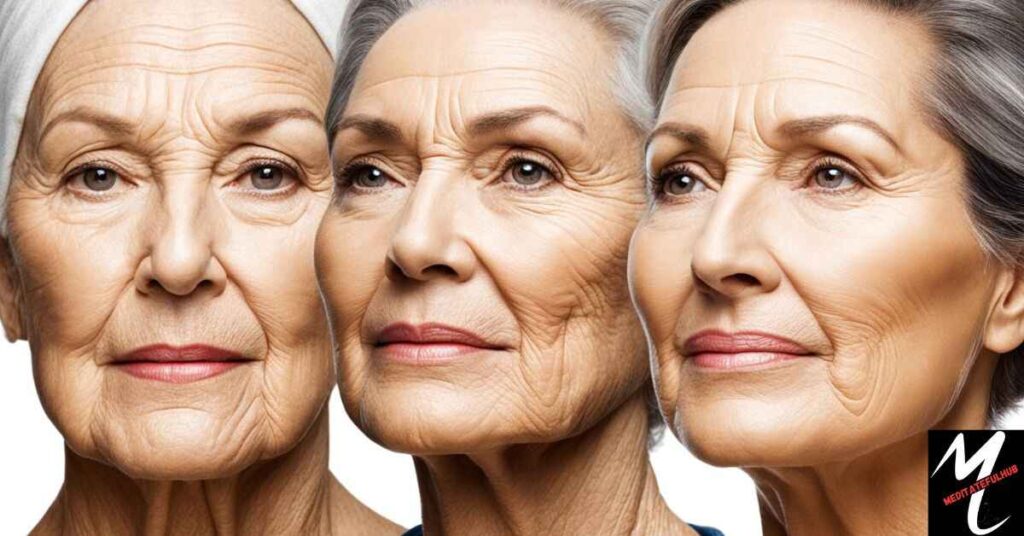
With age, the skin begins to reveal its journey, displaying common signs that tell stories of time. Fine lines, those gentle lines around the eyes and mouth, are often among the first signs of aging. Over time, these lines deepen and are joined by wrinkles, showing a loss of elasticity.
Dark spots, also called age spots, may appear due to sun exposure over the years. The skin’s texture can feel rougher, and sagging might develop around the cheeks and jawline. These are natural changes that don’t need to be hidden but can be managed to maintain a healthy, vibrant appearance.
Essential Anti-Aging Skincare Routine
Creating a thoughtful skincare routine is like crafting a daily ritual to protect and nourish your skin. Each morning and evening, specific steps can make all the difference in preserving a youthful look.
Morning Routine Steps
The morning is a fresh start, and so is your skincare. Begin by gently cleansing your face to remove any oils or impurities that built up overnight. Next, apply a vitamin C serum to brighten the skin and reduce dark spots.
Following this, use a hydrating moisturizer to keep the skin plump and smooth, making it ready to take on the day. The most crucial step is sunscreen, which acts as a shield against harmful UV rays that accelerate aging. This routine doesn’t just prepare your skin for the day but also helps keep it youthful and radiant.
| Step | Purpose | Time |
| Cleanser | Remove impurities | Morning |
| Vitamin C Serum | Brighten and protect | Morning |
| Moisturizer | Hydrate and plump | Morning |
| Sunscreen (SPF) | UV protection | Morning |
Evening Routine Steps
Evenings are for repair and rejuvenation. Start by removing makeup and cleansing your skin to eliminate any dirt accumulated during the day. This prepares your skin for the treatments that follow. Next, apply a retinoid or retinol product, which is known to boost collagen and reduce fine lines. Moisturize to lock in hydration and keep the skin soft overnight. A night cream rich in antioxidants helps repair skin damage, making your skin ready for another day.
| Step | Purpose | Time |
| Makeup Remover | Remove makeup and impurities | Evening |
| Cleanser | Deep cleanse | Evening |
| Retinoid/Retinol | Stimulate collagen, reduce lines | Evening |
| Night Cream | Repair and hydrate | Evening |
Weekly Treatment Schedule
While daily routines lay the foundation, weekly treatments offer a chance for deeper skin renewal. Once or twice a week, exfoliate your skin to slough off dead cells and encourage new cell growth, which keeps the skin looking fresh.
Chemical peels are another option, offering deeper exfoliation and brightening the skin. If you’re targeting specific concerns, like dark spots or fine lines, these treatments help give your skin an extra boost, keeping it smooth, clear, and radiant over time.
| Treatment | Frequency | Purpose |
| Exfoliation | 1-2 times/week | Remove dead skin cells |
| Chemical Peel | 1-2 times/month | Deep exfoliation, brighten skin |
| Hydrating Mask | 1-2 times/week | Extra hydration |
This structured approach to skincare, from understanding aging to establishing daily and weekly routines, offers a roadmap to healthy, glowing skin at any age.
Key Anti-Aging Ingredients
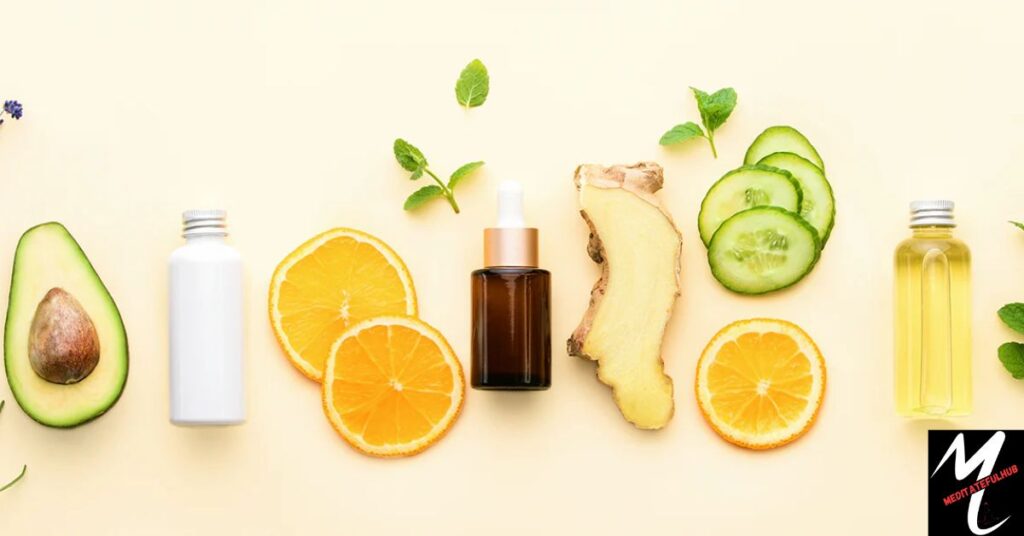
Unlock the magic behind anti-aging skincare by understanding powerful ingredients that turn back the clock for your skin. Each plays a unique role in reviving and protecting your skin’s youth.
Retinoids and Vitamin A
Retinoids, derived from Vitamin A, are known for their remarkable anti-aging effects. They help reduce fine lines by boosting collagen and speeding up cell turnover. This ingredient can make your skin smoother and brighter, but start slow to avoid irritation. Retinoids are best used in the evening, with sunscreen during the day, as they can make the skin more sensitive to sunlight.
Vitamin C and Antioxidants
Vitamin C is a strong antioxidant that shields your skin from damage caused by UV rays and pollution. It brightens your skin and fades dark spots, giving you a glowing look over time. Applying a Vitamin C serum in the morning helps protect and enhance your skin’s natural glow. Antioxidants, like Vitamin C, defend your skin against daily environmental stressors, making it essential for a healthy complexion.
Peptides and Growth Factors
Peptides are tiny proteins that signal your skin to produce more collagen, helping to improve firmness and reduce wrinkles. Growth factors go a step further by supporting skin repair and promoting cell growth. Together, these ingredients work like a team to improve skin elasticity, giving it a plump, youthful look. Peptides are gentle enough to use daily and are a fantastic addition to an anti-aging routine.
Sun Protection Strategies
The sun’s rays are one of the biggest causes of skin aging, making sun protection essential for youthful skin.
Daily UV Protection
Daily UV protection is crucial to prevent wrinkles, dark spots, and other signs of sun damage. Even on cloudy days, harmful UV rays reach your skin, speeding up aging. Wearing sunscreen every day keeps your skin safe and preserves its natural radiance. Protecting your skin from the sun is one of the simplest yet most effective ways to slow down the aging process.
Choosing the Right Sunscreen
Choosing a broad-spectrum sunscreen with at least SPF 30 ensures protection from both UVA and UVB rays. Look for sunscreens that match your skin type and use them as the final step in your skincare routine before makeup. Reapply every two hours when outdoors to maintain a strong barrier. A good sunscreen guards your skin from aging while keeping it healthy and youthful.
Hydration and Moisturizing
Hydrated skin is the secret to a fresh, youthful glow. Both drinking water and using moisturizers play a big role in keeping your skin healthy and radiant.
Internal Hydration
Drinking enough water daily keeps your skin cells hydrated from within. When you’re well-hydrated, your skin looks plump and bright, reducing signs of dullness and fine lines. Aim for at least 8 cups of water a day to maintain that natural glow. Internal hydration is like a beauty boost that works from the inside out, making your skin look naturally fresh and radiant.
External Moisturizing
Applying a good moisturizer locks in moisture and strengthens your skin’s natural barrier. Moisturizers keep your skin soft and prevent it from drying out, especially in harsh weather. Choose a product that suits your skin type for the best results and apply it morning and night. Moisturizing daily is a simple way to protect your skin from external damage, keeping it youthful and smooth.
Lifestyle Factors for Anti-Aging
Your lifestyle choices affect your skin just as much as your skincare routine does. Eating well, resting, and managing stress all contribute to healthy, younger-looking skin.

Diet and Nutrition
Eating a balanced diet filled with vitamins, minerals, and healthy fats supports your skin’s health. Foods like avocados, nuts, and leafy greens provide essential nutrients that keep your skin firm and hydrated. Adding these foods to your diet helps maintain a healthy glow and can slow down signs of aging. Nutrition is the foundation of vibrant skin, enhancing its natural beauty from within.
Sleep and Rest
A good night’s sleep allows your skin to repair and renew. During rest, your body produces collagen, which keeps skin firm and prevents wrinkles. Getting 7-8 hours of sleep each night helps you wake up with refreshed, youthful skin. Quality sleep is like nature’s beauty treatment, giving your skin time to heal and restore its glow.
Stress Management
Stress speeds up aging by affecting your skin’s elasticity and causing breakouts. Practicing stress-reducing activities like meditation, deep breathing, and hobbies can improve your skin health. Lower stress levels result in calmer, clearer skin, giving you a more relaxed and youthful appearance. Managing stress is essential for both mental well-being and preserving your skin’s beauty.
Physical Activity and Anti-Aging
Regular exercise not only keeps you fit but also enhances your skin’s radiance. Moving your body promotes circulation, which nourishes skin cells and makes you glow.
Exercise Benefits
Exercise increases blood flow, delivering oxygen and nutrients to your skin. This circulation boost keeps your skin healthy, firm, and youthful. Sweating during exercise also helps cleanse your pores. Exercise is like a natural skin detox, refreshing your complexion and giving it a rosy, vibrant look.
Recommended Activities
Activities like brisk walking, yoga, and strength training are great for anti-aging. Strength training builds muscle, which helps tighten your skin, while yoga reduces stress and improves flexibility. Choosing exercises you enjoy helps keep your skin looking its best, combining fitness and beauty in one routine.
| Topic | Details |
| Internal Hydration | Drink 8 cups of water daily for glowing skin |
| External Moisturizing | Use moisturizer morning and night to lock in moisture |
| Diet and Nutrition | Eat foods rich in vitamins and healthy fats |
| Sleep and Rest | Aim for 7-8 hours of sleep each night for skin renewal |
| Stress Management | Reduce stress for clearer, younger-looking skin |
| Exercise Benefits | Boost circulation with regular exercise |
| Recommended Activities | Brisk walking, yoga, strength training for skin firmness |
Natural and Holistic Approaches
Natural methods offer gentle, effective ways to keep skin radiant and youthful. These approaches tap into nature’s secrets, working in harmony with the body.
Natural Remedies
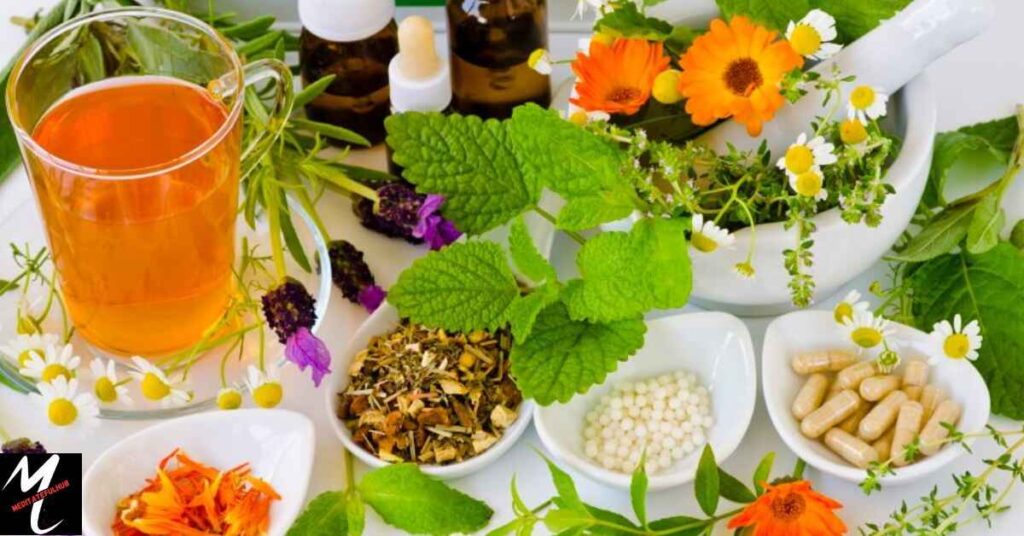
Natural remedies use simple ingredients found in the kitchen or garden. Mixing honey, oats, or yogurt creates a soothing face mask that hydrates and nourishes the skin. Aloe vera gel, for example, is a natural healer, perfect for calming and moisturizing. Natural remedies make skincare easy and close to nature, offering gentle ways to care for your skin.
Probiotics and Gut Health
Healthy skin starts with a healthy gut. Probiotics, found in foods like yogurt, kimchi, and kombucha, help balance gut bacteria, which affects skin clarity and texture. When the gut is happy, the skin looks more radiant and clear. Adding probiotics to your diet can improve not only your skin but also your overall well-being. Gut health is the hidden key to glowing skin.
Read This Blog: How to Cancel Your Chipotle Order: A Complete Guide for Quick, Hassle-Free Cancellations
Professional Treatments
Sometimes, skin needs a little extra care from experts. Professional treatments provide advanced solutions for aging skin.
Dermatologist Recommendations
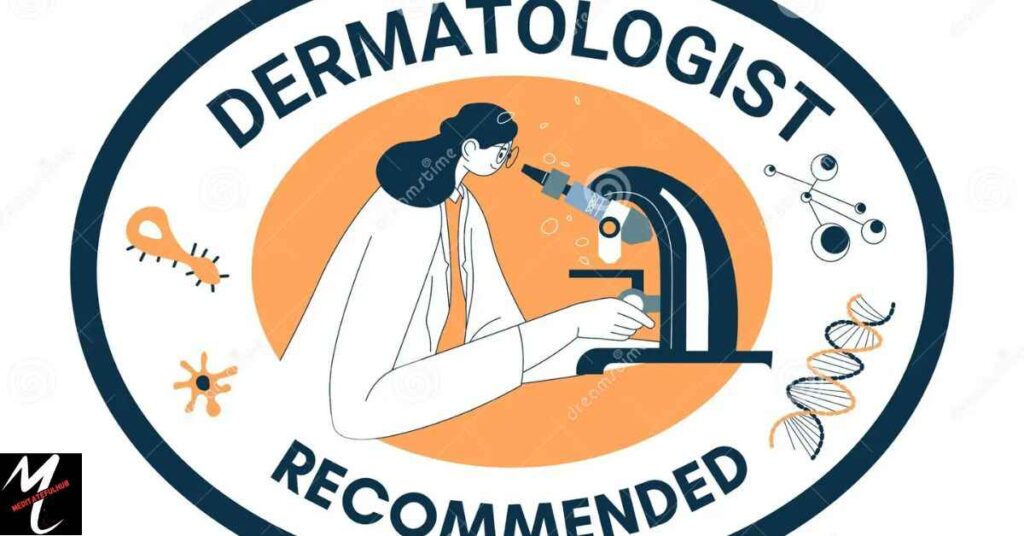
If home remedies and routines don’t show enough results, visiting a dermatologist is a good idea. Dermatologists can assess your skin and suggest treatments tailored to your needs. They offer advice on products, routines, and lifestyle changes to boost skin health. Consulting a dermatologist adds a professional touch to skincare, ensuring the best path for healthy, youthful skin.
Treatment Options
Professional treatments, like chemical peels and laser therapy, can reduce wrinkles, dark spots, and fine lines. Chemical peels, for instance, remove dead skin layers, revealing fresh, smooth skin underneath. These treatments, done under expert supervision, rejuvenate the skin and enhance its natural beauty. With various options available, professional care can help achieve long-lasting results.
Also Read: PracSuite: Transforming Healthcare Practice Management with Efficiency and Innovation
Prevention Strategies
Everyday habits greatly impact skin health. Adopting good practices early can prevent signs of aging.
Habits to Avoid
Certain habits, like smoking and excessive drinking, speed up skin aging. Smoking reduces oxygen flow to the skin, causing dullness and wrinkles. Drinking too much alcohol dehydrates the skin, making it lose elasticity over time. Avoiding these habits can keep skin looking fresh and youthful for longer. Small changes in lifestyle make a big difference in maintaining skin health.
Protective Measures
Daily protection shields skin from harmful elements. Using sunscreen every day prevents UV damage, while antioxidant-rich foods help fight free radicals. Covering up when outside, especially on sunny days, adds another layer of defense. Protective measures are simple steps that protect the skin and slow down the aging process, keeping skin vibrant and healthy.
Beyond Facial Care
Skincare doesn’t stop at the face. Areas like the neck, chest, and hands need care to prevent signs of aging.
Neck and Décolletage Care
The neck and chest are sensitive areas often exposed to the sun. Applying moisturizer and sunscreen here helps keep these areas smooth and wrinkle-free. Using gentle exfoliants can also renew skin texture. Extending skincare to the neck and chest creates a youthful, consistent look, protecting areas that often show age first.
Hand Anti-Aging Care
Hands can reveal age through dark spots and thin skin. Applying hand cream with SPF and moisturizing regularly keeps them soft and youthful. Wearing gloves while doing housework or in cold weather also protects the skin on your hands. Caring for hands as part of your skincare routine ensures they stay smooth and ageless.
| Topic | Details |
| Natural Remedies | Use ingredients like honey, oats, and aloe vera for skincare |
| Probiotics and Gut Health | Probiotics improve gut health and benefit skin clarity |
| Dermatologist Recommendations | Seek expert advice if at-home care isn’t enough |
| Treatment Options | Chemical peels and lasers reduce aging signs |
| Habits to Avoid | Avoid smoking and alcohol to protect skin |
| Protective Measures | Use sunscreen and antioxidants for daily skin protection |
| Neck and Décolletage Care | Moisturize and protect neck and chest areas |
| Hand Anti-Aging Care | Apply hand cream with SPF for smooth, youthful hands |
FAQs
What is best for anti-aging?
Healthy habits, like a balanced diet, regular skincare, and sun protection, are key to preventing signs of aging and maintaining glowing skin.
What is the most powerful anti-aging substance?
Retinoids, derived from Vitamin A, are the most effective anti-aging ingredients, reducing wrinkles and promoting skin cell renewal.
What is the difference between aging and anti-aging?
Aging is a natural process that leads to skin changes, while anti-aging focuses on slowing or reversing these signs to maintain a youthful look.
What are different anti-aging treatments?
Anti-aging treatments include retinoids, chemical peels, laser therapy, and moisturizers, each targeting specific skin concerns effectively.
Conclusion
Aging is a journey, but taking simple anti-aging steps can help keep your skin vibrant and youthful. From natural remedies to professional treatments, there’s an anti-aging solution for every skin type.
Staying hydrated, protecting your skin from the sun, and nourishing it with essential nutrients can make a big difference. Embrace aging gracefully with an anti-aging routine that enhances your natural beauty and brings out the best in your skin.

George, an esteemed author with 8 years of experience in meditation, imparts transformative knowledge on meditatefulhub.com. His writings resonate globally, guiding individuals on a profound journey of self-discovery and inner peace.
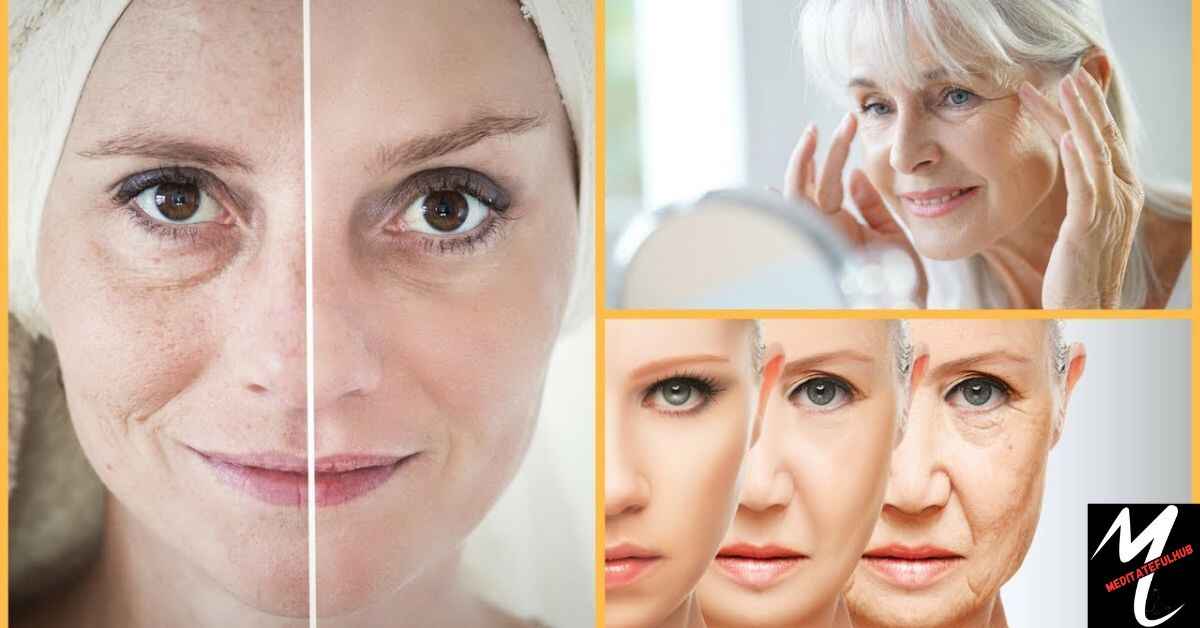




![How to Cancel Your Brazzers Subscription Complete Guide [2024]](https://meditatefulhub.com/wp-content/uploads/2024/11/How-to-Cancel-Your-Brazzers-Subscription-Complete-Guide-2024-300x157.jpg)





